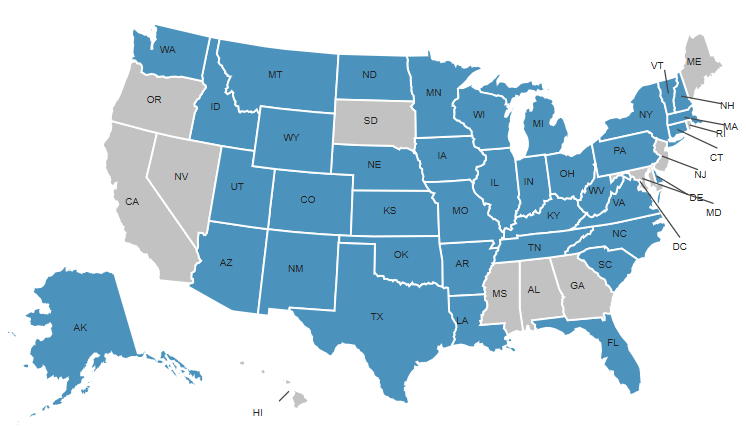eDiscovery Daily Blog
Here’s Something that Canada and South Carolina Have in Common: eDiscovery Trends
They both just recently adopted changes to their rules of professional conduct that include a duty of technology competence.
Leave it to Bob Ambrogi – the source of all duty of technology competence updates on his excellent LawSites blog for the information. Here’s the lowdown:
Canada
As Bob reported way back in 2017, the Federation of Law Societies of Canada had proposed changes to its Model Code of Professional Conduct that would include a duty of technology competence similar to ABA Model Rule 1.1, Comment 8. On Oct. 19, the Federation formally amended its Model Code to include that duty of technology competence. Similar to the ABA rule, the Federation’s duty is embodied in comments to its rule on maintaining competence, Rule 3.1-2. These new comments say:
[4A] To maintain the required level of competence, a lawyer should develop an understanding of, and ability to use, technology relevant to the nature and area of the lawyer’s practice and responsibilities. A lawyer should understand the benefits and risks associated with relevant technology, recognizing the lawyer’s duty to protect confidential information set out in section 3.3.
[4B] The required level of technological competence will depend on whether the use or understanding of technology is necessary to the nature and area of the lawyer’s practice and responsibilities and whether the relevant technology is reasonably available to the lawyer. In determining whether technology is reasonably available, consideration should be given to factors including:
(a) The lawyer’s or law firm’s practice areas;
(b) The geographic locations of the lawyer’s or firm’s practice; and
(c) The requirements of clients.
Bob notes that “Just as individual states must adopt an ABA model rule, the individual Canadian provincial and territorial law societies must adopt this rule.” So, we’ll see how quickly that happens.
South Carolina
The day before Thanksgiving, the Supreme Court of South Carolina approved a package of amendments to the state’s Rules of Professional Conduct, all based on the 2012 amendments to the ABA Model Rules of Professional Conduct, which included a duty of technology competence as embodied in ABA Model Rule 1.1, Comment 8. This made South Carolina the 38th state to adopt a duty of technology competence based on ABA Model Rule 1.1, Comment 8. See the map above and Bob’s post here for all 38 states.
The new South Carolina provision is a modified version of the ABA model rule. It is found in a new Comment 6 to Rule 1.1, and reads:
“To maintain the requisite knowledge and skill, a lawyer should keep abreast of changes in the law and its practice, including a reasonable understanding of the benefits and risks associated with technology the lawyer uses to provide services to clients or to store or transmit information related to the representation of a client, engage in continuing study and education and comply with all continuing legal education requirements to which the lawyer is subject.”
In its order, the Supreme Court also amended Rule 1.6 (and comment 20 to Rule 1.6), pertaining to confidentiality of information, to add a paragraph (c), which reads:
“A lawyer shall make reasonable efforts to prevent the inadvertent or unauthorized disclosure of, or unauthorized access to, information relating to the representation of a client.”
Bob notes that South Carolina’s rule adds a restrictive clause to that, so that the duty extends only to “technology the lawyer uses to provide services to clients or to store or transmit information related to the representation of a client” and I agree with Bob that lawyers need to also understand the technology that their clients use as well. So, maybe it’s more like 37 1/2 states have adopted a duty of technology competence? ;o) Regardless, Bob’s posts linked above provide more information on the updates from both jurisdictions.
So, what do you think? Are you surprised that we still have 12 states that haven’t adopted a duty of technology competence? Please share any comments you might have or if you’d like to know more about a particular topic.

Image Copyright © LawSites
Sponsor: This blog is sponsored by CloudNine, which is a data and legal discovery technology company with proven expertise in simplifying and automating the discovery of data for audits, investigations, and litigation. Used by legal and business customers worldwide including more than 50 of the top 250 Am Law firms and many of the world’s leading corporations, CloudNine’s eDiscovery automation software and services help customers gain insight and intelligence on electronic data.
Disclaimer: The views represented herein are exclusively the views of the author, and do not necessarily represent the views held by CloudNine. eDiscovery Daily is made available by CloudNine solely for educational purposes to provide general information about general eDiscovery principles and not to provide specific legal advice applicable to any particular circumstance. eDiscovery Daily should not be used as a substitute for competent legal advice from a lawyer you have retained and who has agreed to represent you.

